Community Kitchen – accelerating disaster recovery with a women-led care initiative
Date:
Authors: Sangharsha Panta, Sama Shrestha and Priti Shrestha
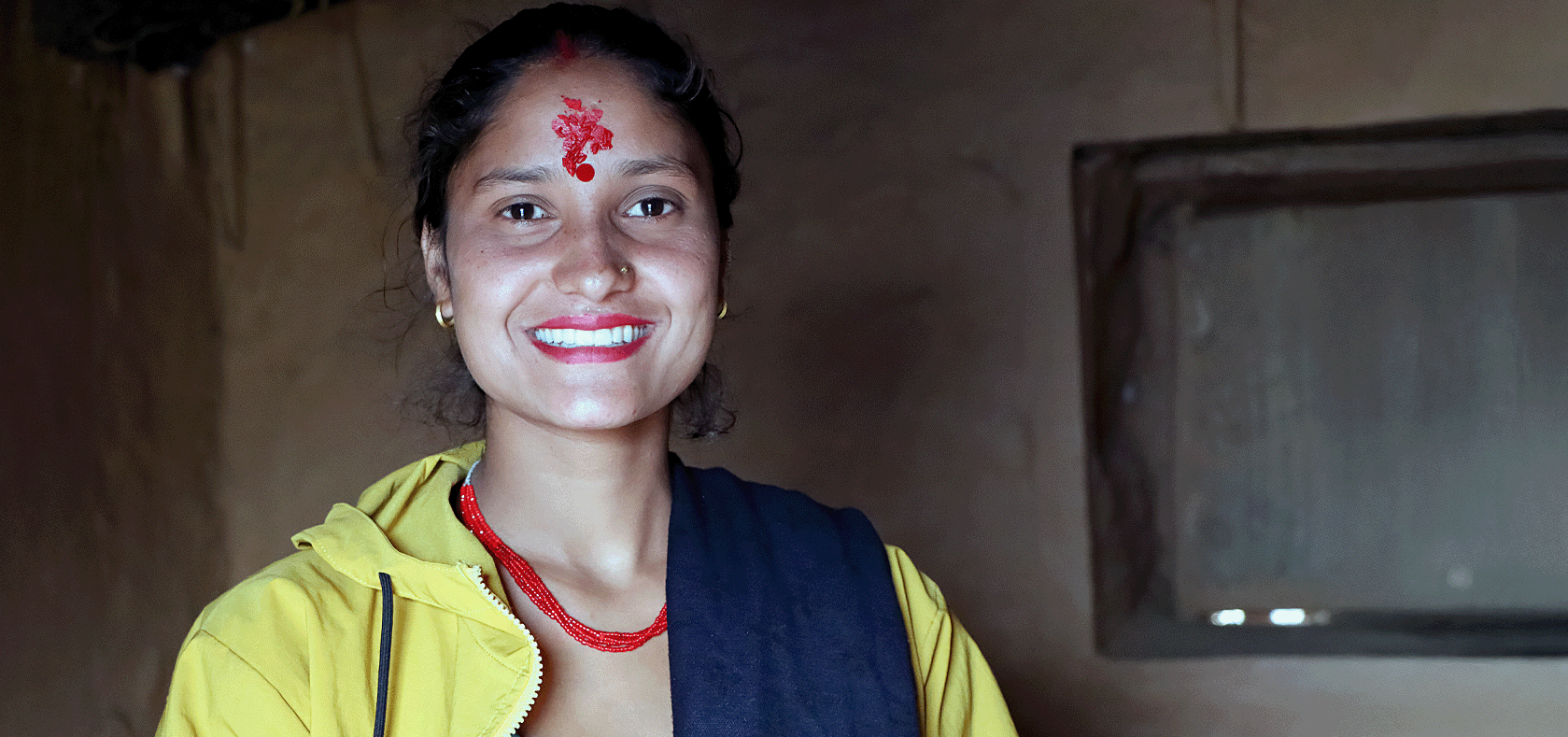
“Life has been difficult since last November. Staying in a tent with a newborn child and struggling to get two-times meals a day was a nightmare,” recalls Laxmi Pariyar, resident of Pariyar Tole, Rukum (West) of Karnali Province, Nepal. Laxmi, a mother of a lactating daughter had to stay inside a tent for two months after a devastating 6.4 magnitude earthquake struck Nepal’s Karnali province on November 3, 2023.
She along with her daughter who was just 10 months old back then had no roof to live on and proper food to eat as the earthquake destroyed everything. With her husband working in a neighboring country India, Laxmi was the sole caretaker of her daughter including her in-laws.
It's about to be a year since her horrifying experience of the earthquake. Now, Laxmi and her family have started staying in a temporary tin house that they constructed through the relief amount provided by her local government, Sani Bheri Rural Municipality. For this, she is thankful to her local government including the Community Kitchen initiative, which provided nutritious meals to her and her family sharing her care responsibility and enabling focus on building her current temporary shelter.
"Not having to cook dinner gave us time to reconstruct this temporary residence. The quality of food and hygiene standards maintained in the kitchen is impressive," she added.
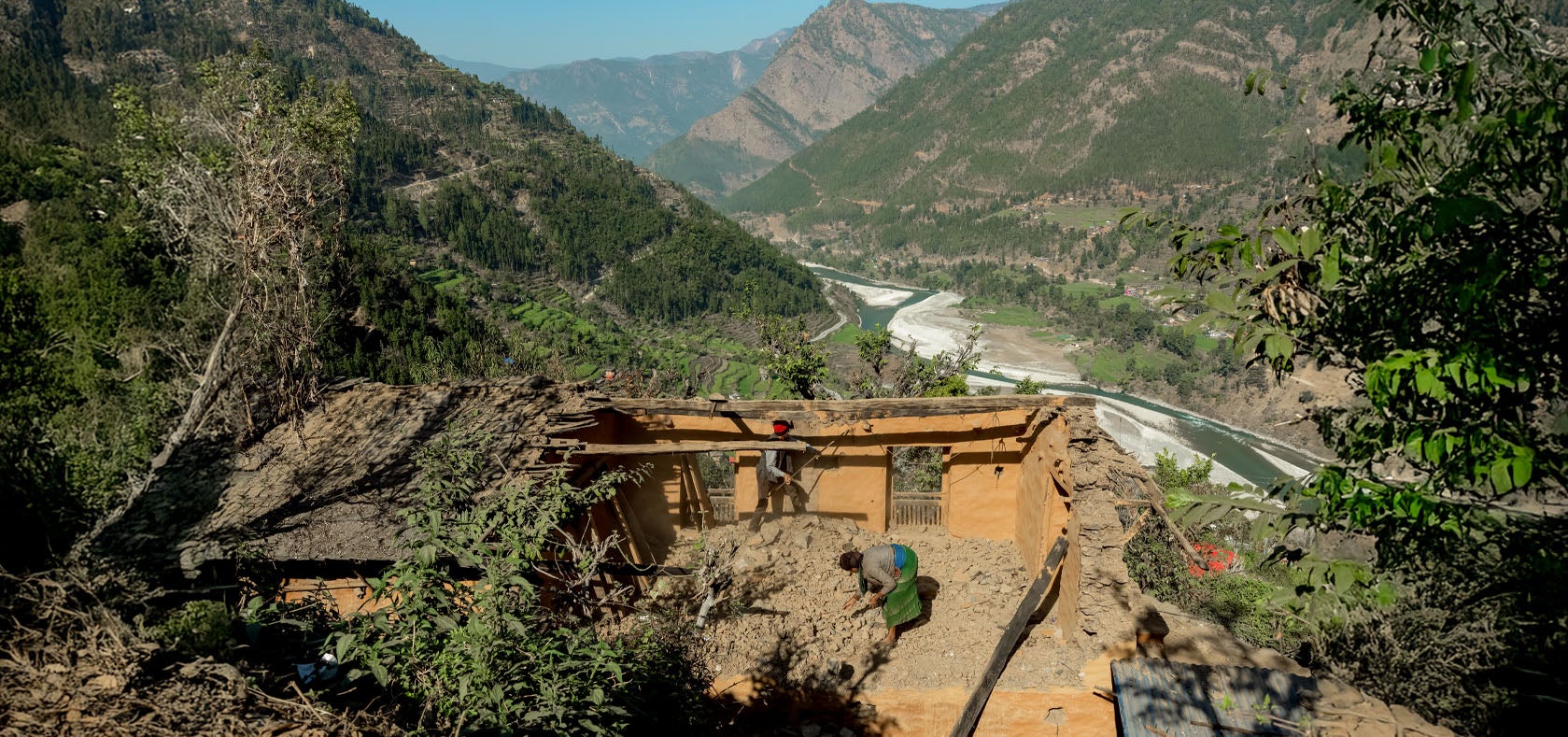
The earthquake, which had its epicenter in Ramidanda, Jajarkot, claimed 154 lives, injured over 360 people, and left thousands homeless (National Earthquake Monitoring and Research Center of Nepal). As survivors like Laxmi began the arduous task of rebuilding their lives and recovering from the earthquake's effects, the burden of unpaid care responsibilities on women became even more pronounced.
However, it is not that the triple burden on women in these areas arose only after the earthquake. Apart from recovery, the care burden on them was always there which amplified after the earthquake. Sahara Biswakarma from Jajarkot shared how she had to walk for 3-4 hours to fetch water from nearby water resources in her husband's village before an earthquake collapsed their house on last November. Now residing in a rented room with her one-year-old son and ill mother at Bheri Municipality of Jajarkot, she mentions it has become even more difficult to manage everything alone. “My husband does labor work in a neighboring village and earns only 7 USD a month, and this doesn’t cover our rent and food expenses, which is why I am searching for a job.” She adds, “In this challenging situation getting at least one time meal has helped me take care of my ill mother, and infant child providing me some time to ask around for some available jobs.”
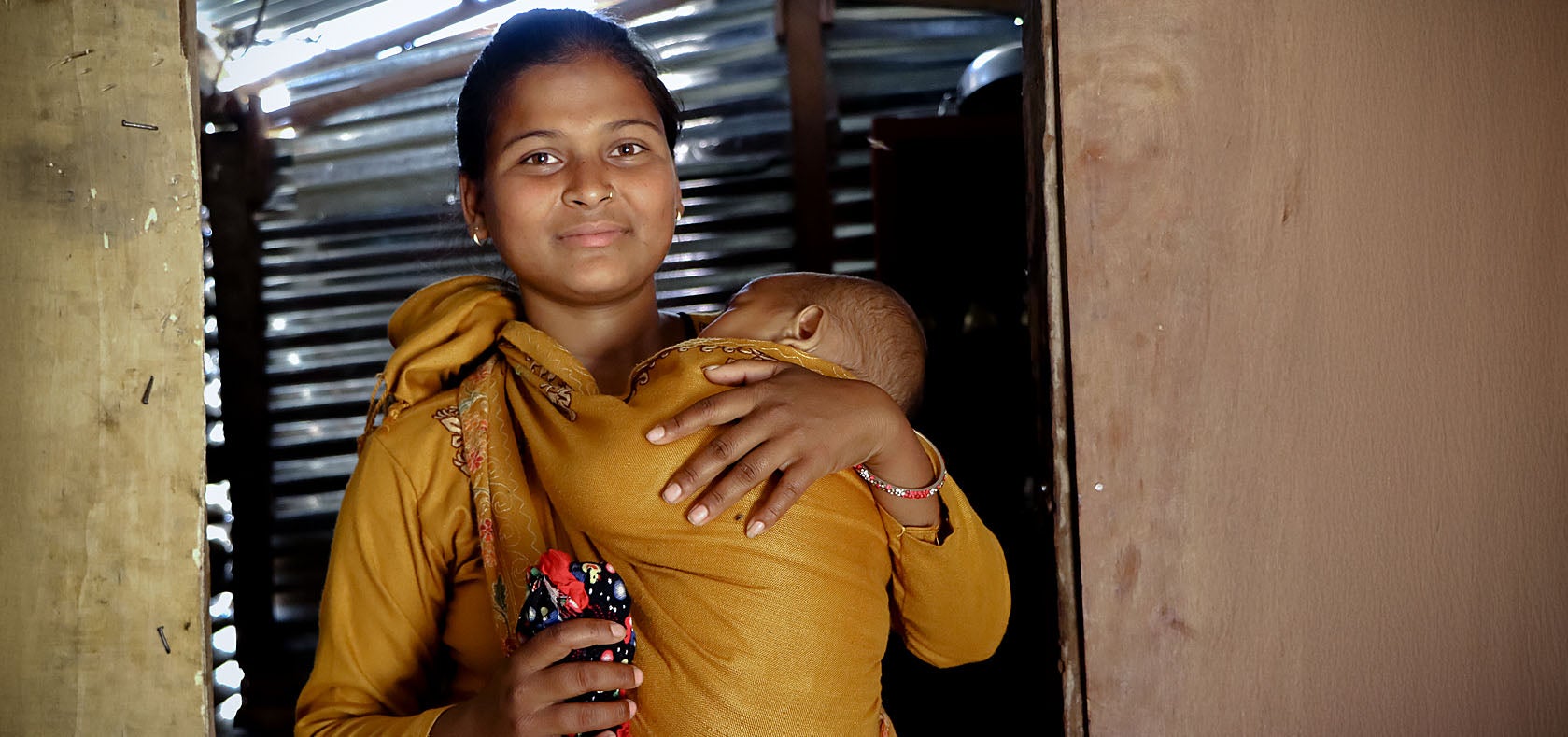
This sharing of Sahara and Laxmi represents how the natural disaster in the affected districts has amplified the unpaid care burden on women.
Recognizing such unrecognized challenges faced by women in these communities during and after the disaster, UN Women with financial support from the Government of Finland collaborated with the Human-Friendly Disaster Management Group and the Women Humanitarian and DRR Platform and launched a month-long Community Kitchen initiative as the opportunity to demonstrate a care model led by women. The kitchen served as communal spaces where women were engaged in paid care work to cook and serve free nutritious meals for the community allowing them to focus on rebuilding their homes without the worry of securing at least one meal daily for a month. Conducted from March 4 to April 3, 2024, in Jajarkot, and March 12 to April 11, 2024, in West Rukum, the community kitchens responded to the differential impact of disaster on women by addressing concerns of hunger, shelter, and income generation. The kitchens also demonstrated a model of community-led care initiative, for sustaining the lives of families and communities, at a critical time.
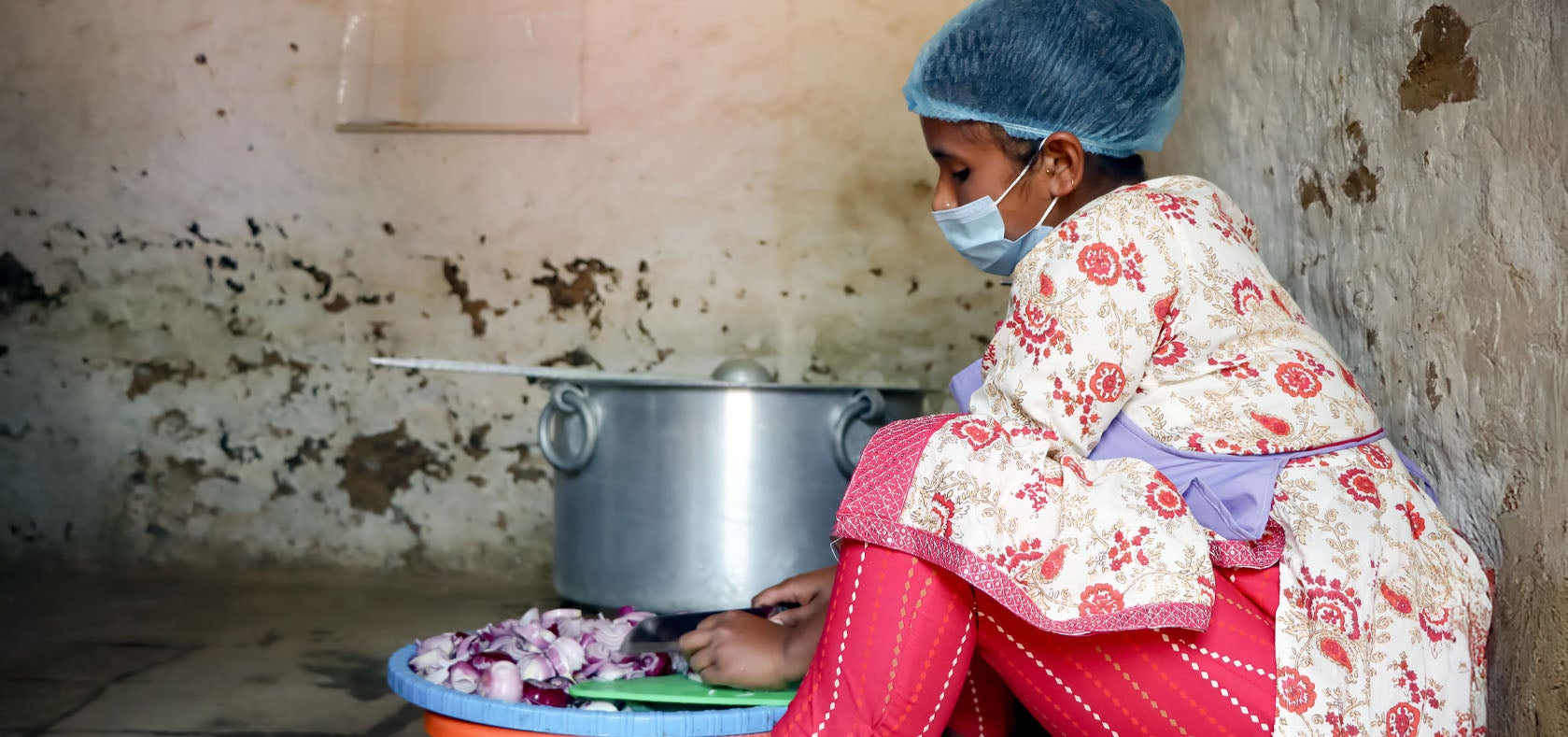
Kalpana Karki Shakya , a single mother and head cook at the community kitchen in Ranagaon, Bheri Municipality, Jajarkot, is a testament to the positive outcome of the initiative. Kalpana, who had attended cook training but lacked the opportunity to apply her skills, found her calling in the community kitchen. “I got the opportunity to use my skills while serving my community. This experience not only fulfilled me but also enabled the community to acknowledge that I’m capable of cooking and serving a large number of people,” she shares. Kalpana’s leadership not only provided nourishment but also transferred valuable skills to other women, fostering a sense of community and empowerment.
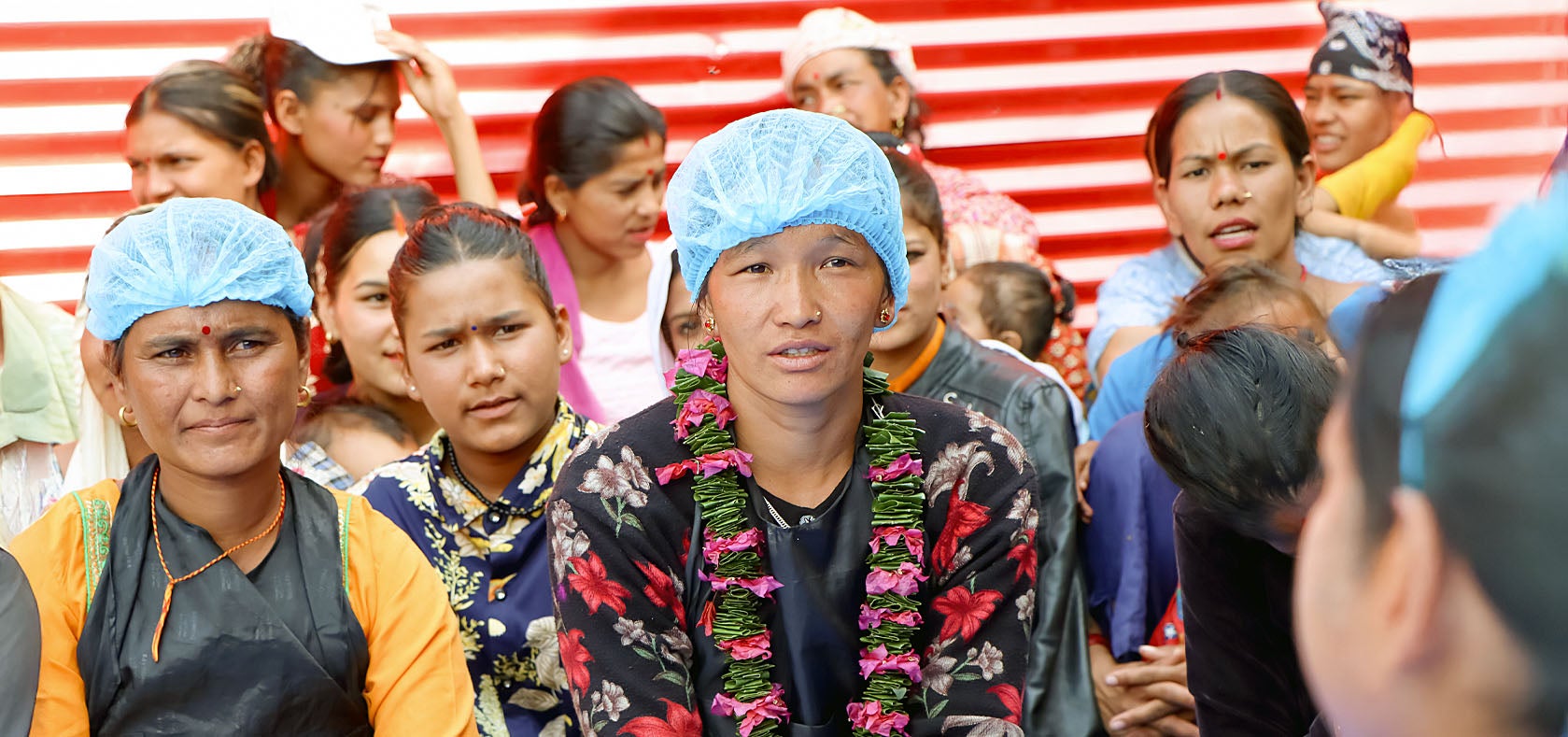
The initiative not only employed 15 women but also ensured that approximately 795 individuals from 150 households received at least one nutritious meal a day. Babita Chanara, an assistant cook in Jajarkot, plans to leverage her newfound confidence and skills to start a catering business. “If we can cook for this many people, we can certainly cater for any occasion and earn our living. This job gave me money, confidence, and respect in my community,” she said.
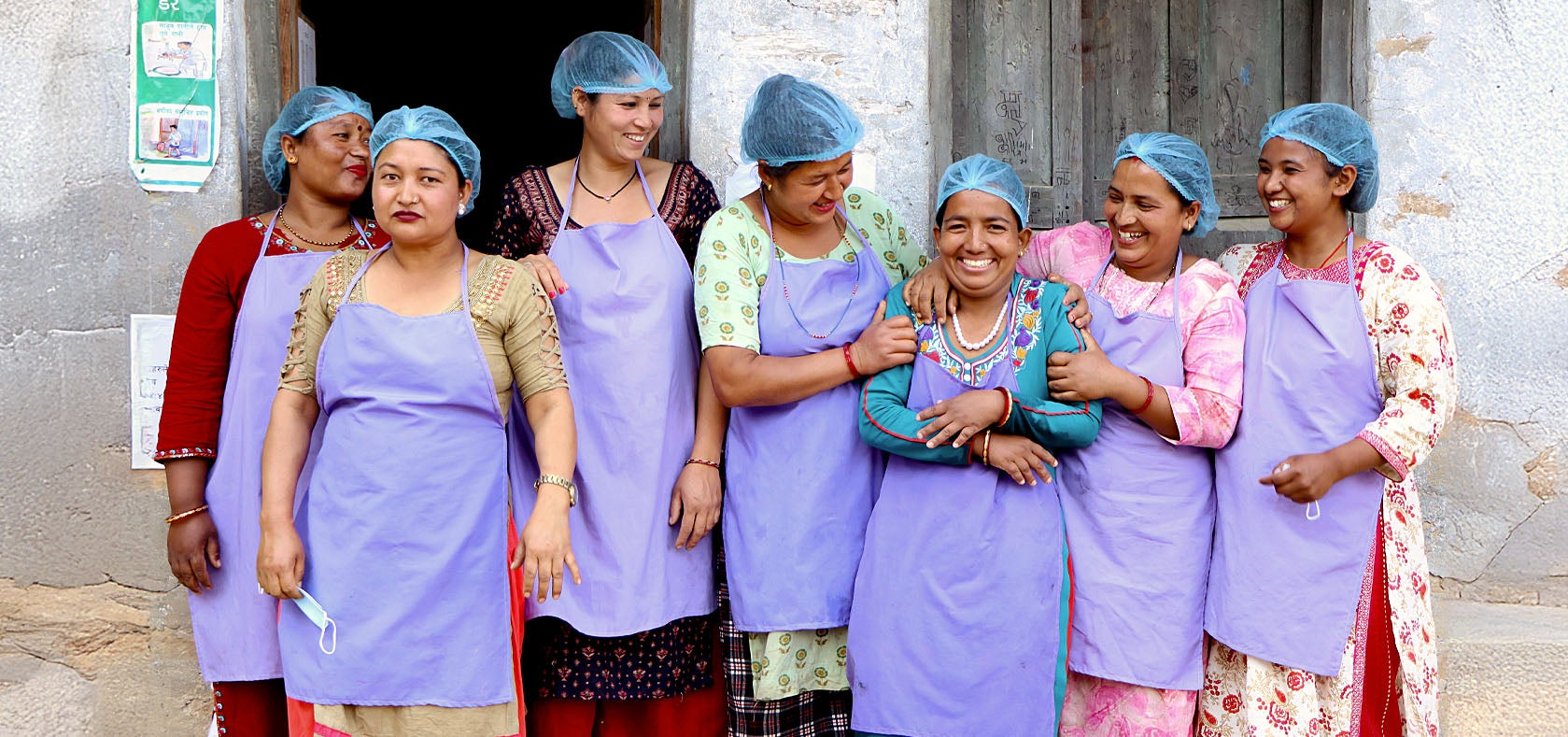
In the face of adversity, the women of Jajarkot and Rukum West have shown remarkable resilience and leadership. Through the Community Kitchens, they not only provided essential nourishment but also laid the foundation for a women-led community care model, where women can come together as a collective and bring visibility to the value of unpaid care work. Families who benefited from the meals expressed their gratitude, highlighting how the initiative allowed them to allocate more time to rebuild their homes, care for children, and engage in income-generating activities. This initiative stands as a powerful example of how community-led care can sustain and uplift families during the most challenging times.